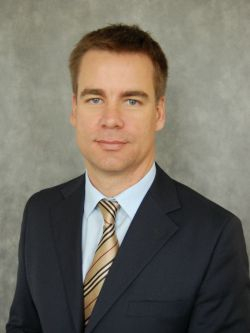
Dominique Tissot
Partner, Head of the Energy Efficiency and Renewables Practice
CMS, Russia
Despite the wealth of opportunities and high potential of energy savings and energy efficiency in Russia — as well as the entry into force in 2009 of Law 261-FZ, which established the framework for energy-efficiency reform — not many projects have been completed thus far. So, what is the reasoning behind this?
This may be partially explained by the general approach of the majority of Russian businesspeople who are more short-term oriented and usually do not consider projects with more than a two-year payback period. This indeed significantly limits the development of the energy service company (ESCO) business model, which is characterized by longer payback periods, usually ranging from five to 15 years, depending on the type of project and the amount of financial investment.
That is why it is still almost impossible today for Russian companies to attract long-term financial solutions apart from a few "happy rich," such as Russian monopolies (e.g. Russian Railways or Gazprom) and leading foreign companies, which are better positioned to receive long-term credit facilities at lower costs on foreign financial markets. This explains the still-drastically low level of investment in clean technologies from the private sector.
Another reason negatively impacting the development of the Russian energy efficiency market is the opacity and lack of preparation of the proposed energy efficiency and energy savings projects. This is mostly owing to the lack of understanding and poor technical skills in these matters.
Moreover, the ESCO business model is still not very well understood and so not trusted yet. Challenges around the definition and allocation of risks and functions of project participants, the assessment of realistic payback periods and assuring the predictability of tariff pricing for long-term projects as well as establishing guarantees required for project bankability create additional difficulties in the development of an ESCO market. Also, long-term contracts are not usually trusted in Russia because of poorly developed and unclear legislation.
There is clearly a need for increased public awareness of energy efficiency and energy savings issues and for the training of managers and representatives of the various state administrations involved in these projects. In this respect, various state agencies, such as the Russian Energy Agency (REA), headed by Timur Ivanov, are quite active and play a key role in the development of the energy efficiency market. Also, a number of centers for energy efficiency have been created recently to promote investment in energy efficiency and energy savings technologies in Russian companies, such as the Franco-Russian Center for Energy Efficiency, created a year ago between the REA and the Association of French companies for energy efficiency, headed by Jean-Louis Stasi, CEO of Schneider Electric for Russia and the CIS.
More generally speaking, the absence of a commonly shared vision on energy efficiency challenges as well as the conflicting interests between the various Russian state bodies involved do not facilitate the emergence of a Russian energy efficiency market.
This is the reason why most of the important projects currently under way in the public sector are sponsored by leading financial institutions such as the EBRD or the IFC, while in the private sector, they are financed by leading foreign investors that specialize in clean technologies and are well aware of the specifics of the ESCO business.
In any event, more time is needed to gain market trust in ESCO structures through various success stories to create reliable long-term project financing structures and demonstrate to energy market players that additional profits can be derived through appropriate and properly structured investment projects in energy efficiency and energy saving technologies.
In this respect, a key role must be played by Russian state banks and other state financial institutions by developing and launching attractive and innovative banking products dedicated to ESCOs and other energy efficiency market players ready to invest in this specific market, with due account taken of its specific risk matrix.
More generally, one may reasonably hope that Russia's decision to liberate gas prices and WTO accession (which shall help increase the share of foreign direct investment) should create better conditions for the development of the ESCO market in Russia over the mid term.
A Message from The Moscow Times:
Dear readers,
We are facing unprecedented challenges. Russia's Prosecutor General's Office has designated The Moscow Times as an "undesirable" organization, criminalizing our work and putting our staff at risk of prosecution. This follows our earlier unjust labeling as a "foreign agent."
These actions are direct attempts to silence independent journalism in Russia. The authorities claim our work "discredits the decisions of the Russian leadership." We see things differently: we strive to provide accurate, unbiased reporting on Russia.
We, the journalists of The Moscow Times, refuse to be silenced. But to continue our work, we need your help.
Your support, no matter how small, makes a world of difference. If you can, please support us monthly starting from just $2. It's quick to set up, and every contribution makes a significant impact.
By supporting The Moscow Times, you're defending open, independent journalism in the face of repression. Thank you for standing with us.
Remind me later.





